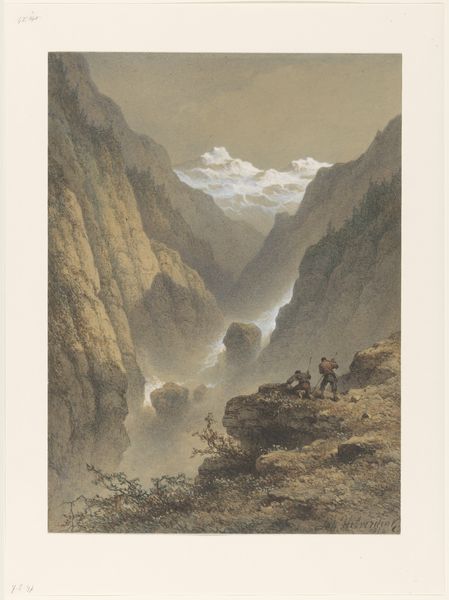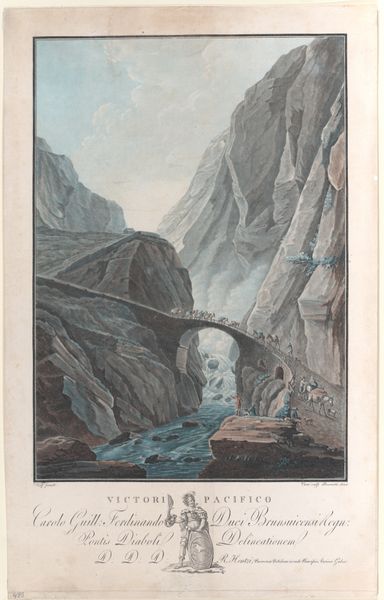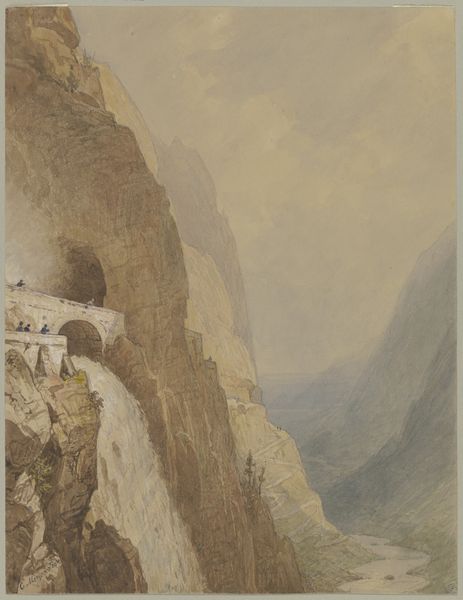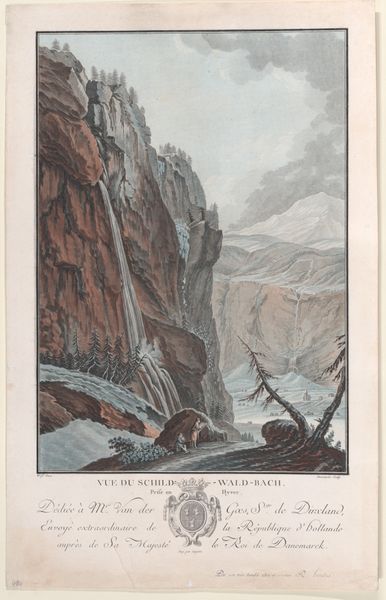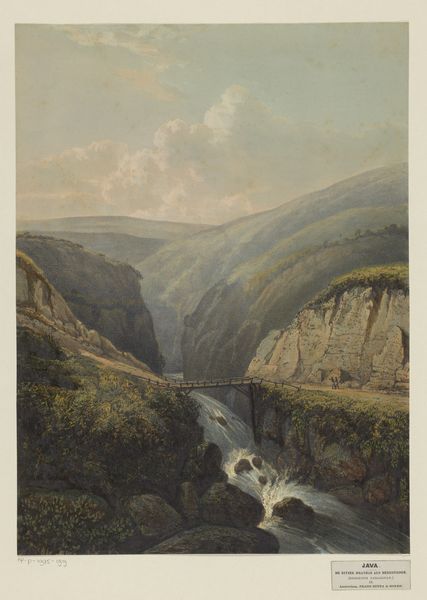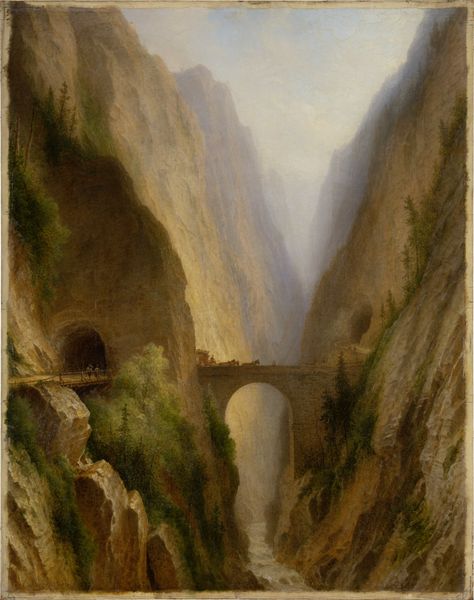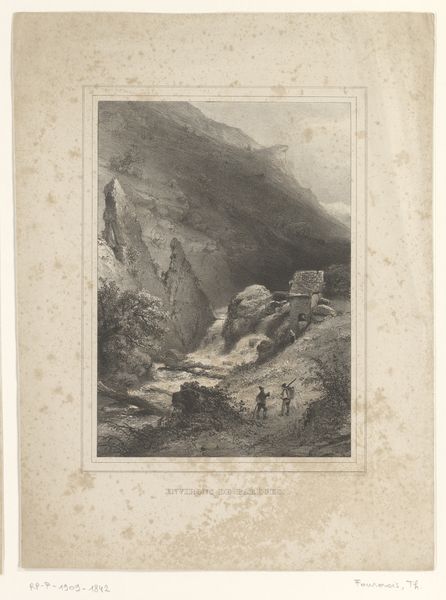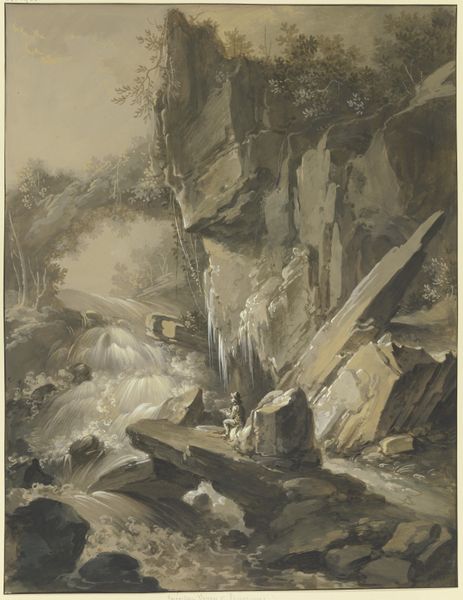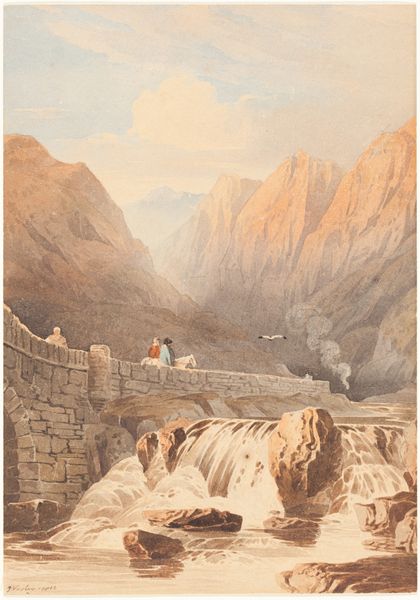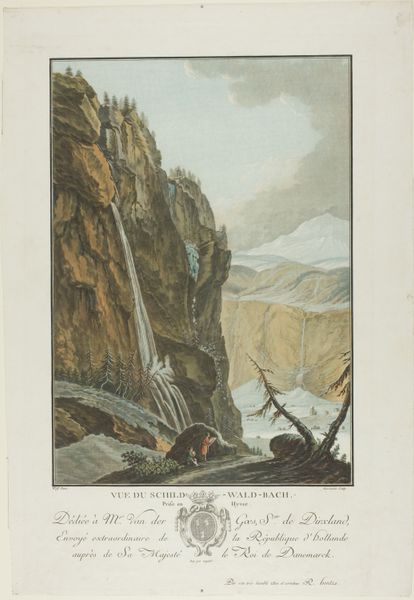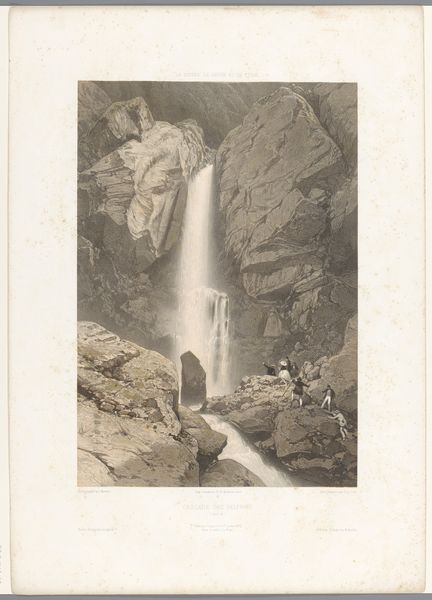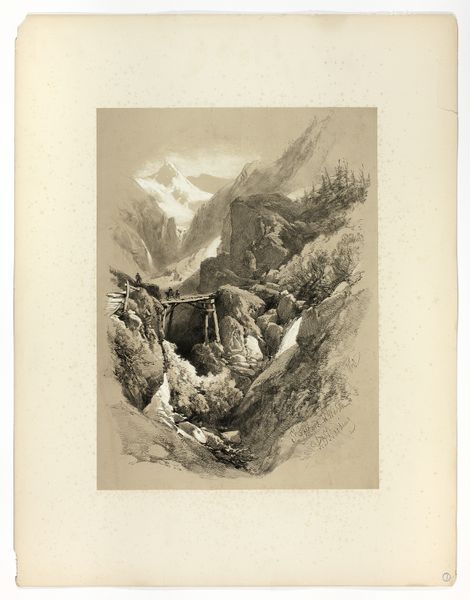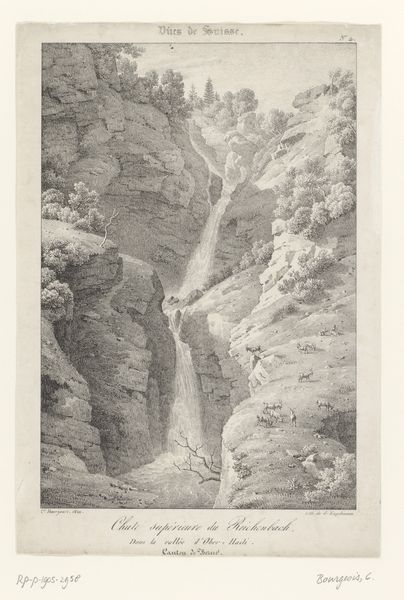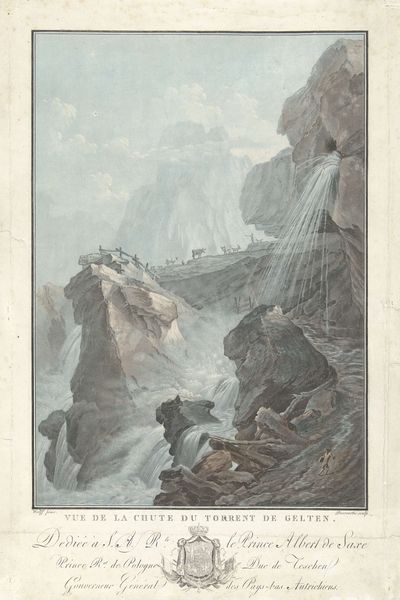
Gezicht op de pas van Tête Noire, mogelijk nabij Trient in Zwitserland c. 1813 - 1870
0:00
0:00
print, etching
# print
#
etching
#
landscape
#
charcoal drawing
#
romanticism
Dimensions: height 543 mm, width 401 mm
Copyright: Rijks Museum: Open Domain
This print, “View of the Tête Noire Pass, possibly near Trient in Switzerland,” was made by an anonymous artist using etching and aquatint. These printmaking techniques are indirect. The artist would have coated a metal plate with a waxy, acid-resistant ground, scratched an image into it, then bathed the plate in acid, which bites into the exposed metal. For the aquatint, powdered resin is adhered to the plate, creating a granular surface that, when etched, produces areas of tone. The resulting print imitates the appearance of watercolor. Notice how the process allows for meticulous rendering of the rockface, and the atmospheric effects of light and shadow. This was ideally suited to picturesque landscape, which was very popular with tourists in the 19th century. The production of images like this one also depended on the labor of the many people involved in mining, refining, and working metal - a whole world of industry condensed onto a single sheet of paper. Considering these processes, we appreciate how prints like this one blurred the boundaries between art, craft, and industry.
Comments
No comments
Be the first to comment and join the conversation on the ultimate creative platform.
